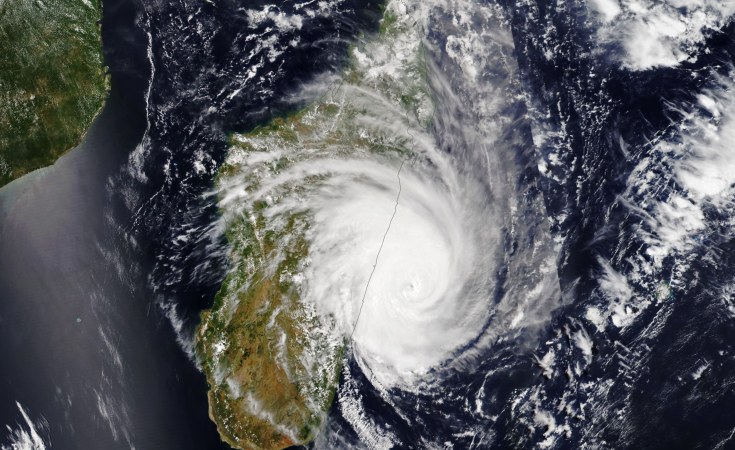Tropical cyclone Freddy was, on 21 February 2023, bearing down on Mauritius and Madagascar. Mauritius grounded flights and, news agency Reuters reported, emergency teams in four regions of Madagascar were braced for "heavy rains, floods and landslides".
A day earlier the Mauritius Meteorological Services issued a Class 3 cyclone warning, saying estimated gusts in the centre of Cyclone Freddy could reach around 280 kilometres an hour.
Both island nations are located in the Indian Ocean and are no strangers to tropical cyclones. But, as the global climate shifts, such storms will become ever more common, endangering millions of people in Madagascar, Mauritius and other countries in the southern African region like Mozambique and Malawi.
The Conversation Africa has published a number of articles explaining the science of tropical cyclones and the role climate change is playing in their increasing frequency and force. Here are five essential reads.
Warming oceans
Tropical cyclones are huge. They can span more than 1,000km in diameter and they draw their energy from the ocean heat - ocean surface temperatures of at least 26⁰C are required for tropical cyclones to form. Over the past 30 years, as the world's oceans have become warmer, the locations of where tropical cyclones form and intensify have been shifting.
Climate scientists Micheal Pillay and Jennifer Fitchett unpacked these shifts.
Read more: Tropical cyclones in the South West Indian Ocean: new insights
Devastation
The most damaging tropical cyclones of the past few years were tropical cyclones Idai and Kenneth, which hit Mozambique especially hard in March and April of 2019. Idai alone killed more than 1,500 people in Mozambique, Malawi and Zimbabwe. In an article first published in 2019 soon after the devastation and updated in 2022 as more powerful storms battered Mozambique, Professor Fitchett explained why tropical cyclones from the Indian Ocean were becoming ever more powerful.
Read more: Why the Indian Ocean is spawning strong and deadly tropical cyclones
Countries must pull together
In the wake of tropical storms Idai and Kenneth, researcher Chris Changwe Nshimbi argued that the Southern African Development Community had once again proved that it wasn't ready to deal with environmental disasters as a collective. He traced the reasons for these shortcomings and suggested ways forward - more critical than ever as tropical storms and other climate-related crises hammer southern Africa.
Read more: Southern African countries won't manage disasters unless they work together
More to come
Nshimbi is right: there is far more to come. Professor Fitchett - who has dedicated much of her research to the phenomenon - explained what drives extreme weather events.
Read more: Southern Africa must brace itself for more tropical cyclones in future
The bigger picture
Tropical cyclones are only one part of the African continent's climate crisis. Meteorologist Victor Ongoma explained what climate change experts were predicting for the continent and how different regions would be affected.
Read more: Insights for African countries from the latest climate change projections
Moina Spooner, Assistant Editor
Natasha Joseph, Commissioning Editor


